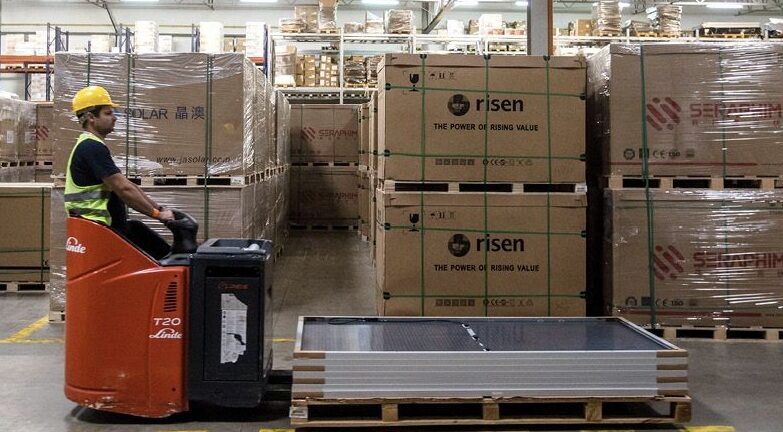From ESS News
Rechargeable lithium metal batteries are a promising alternative to ubiquitous lithium-ion batteries in electric vehicles and energy storage applications that require high energy density. However, their practical implementation is held back by safety concerns and a shortened battery cycle life arising from a combination of undesirable lithium dendrite and solid-electrolyte interphase formations.
Now, a team of researchers at the University of Hong Kong (HKU) has developed a new generation of lithium metal batteries based on microcrack-free polymer electrolytes, which promise extended lifespan and enhanced safety at temperatures as high as 100 degrees Celsius.
The microcrack-free polymer electrolytes are synthesized via a straightforward one-step click reaction, exhibiting notable attributes including “a remarkable resistance to dendrite growth and outstanding non-flammability,” the researchers reported.
They also demonstrated a wide electrochemical stability window up to 5 V, and a high cation conductivity of 3.1 × 10−5 S cm−1 at high temperatures.
These enhanced properties are attributed to the presence of tethered borate anions in microcrack-free membranes, which benefits the acceleration of selective Li+ cations transport as well as suppression of dendrite growth.
Ultimately, the microcrack-free anionic network polymer membranes enable lithium metal batteries to function as safe and long-cyclable energy storage devices at high temperatures with a capacity retention of 92.7% and an average coulombic efficiency of 99.867% over 450 cycles at 100 C.
To continue reading, please visit our ESS News website.
This content is protected by copyright and may not be reused. If you want to cooperate with us and would like to reuse some of our content, please contact: editors@pv-magazine.com.




By submitting this form you agree to pv magazine using your data for the purposes of publishing your comment.
Your personal data will only be disclosed or otherwise transmitted to third parties for the purposes of spam filtering or if this is necessary for technical maintenance of the website. Any other transfer to third parties will not take place unless this is justified on the basis of applicable data protection regulations or if pv magazine is legally obliged to do so.
You may revoke this consent at any time with effect for the future, in which case your personal data will be deleted immediately. Otherwise, your data will be deleted if pv magazine has processed your request or the purpose of data storage is fulfilled.
Further information on data privacy can be found in our Data Protection Policy.